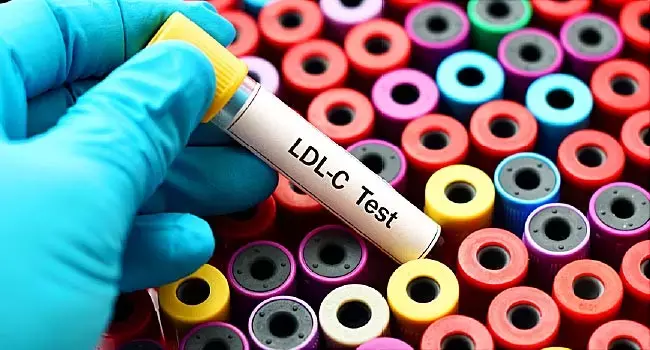- Home
- Medical news & Guidelines
- Anesthesiology
- Cardiology and CTVS
- Critical Care
- Dentistry
- Dermatology
- Diabetes and Endocrinology
- ENT
- Gastroenterology
- Medicine
- Nephrology
- Neurology
- Obstretics-Gynaecology
- Oncology
- Ophthalmology
- Orthopaedics
- Pediatrics-Neonatology
- Psychiatry
- Pulmonology
- Radiology
- Surgery
- Urology
- Laboratory Medicine
- Diet
- Nursing
- Paramedical
- Physiotherapy
- Health news
- Fact Check
- Bone Health Fact Check
- Brain Health Fact Check
- Cancer Related Fact Check
- Child Care Fact Check
- Dental and oral health fact check
- Diabetes and metabolic health fact check
- Diet and Nutrition Fact Check
- Eye and ENT Care Fact Check
- Fitness fact check
- Gut health fact check
- Heart health fact check
- Kidney health fact check
- Medical education fact check
- Men's health fact check
- Respiratory fact check
- Skin and hair care fact check
- Vaccine and Immunization fact check
- Women's health fact check
- AYUSH
- State News
- Andaman and Nicobar Islands
- Andhra Pradesh
- Arunachal Pradesh
- Assam
- Bihar
- Chandigarh
- Chattisgarh
- Dadra and Nagar Haveli
- Daman and Diu
- Delhi
- Goa
- Gujarat
- Haryana
- Himachal Pradesh
- Jammu & Kashmir
- Jharkhand
- Karnataka
- Kerala
- Ladakh
- Lakshadweep
- Madhya Pradesh
- Maharashtra
- Manipur
- Meghalaya
- Mizoram
- Nagaland
- Odisha
- Puducherry
- Punjab
- Rajasthan
- Sikkim
- Tamil Nadu
- Telangana
- Tripura
- Uttar Pradesh
- Uttrakhand
- West Bengal
- Medical Education
- Industry
LDL-C/HDL-C ratio can correlate with coronary artery disease severity in STEMI patients: BMC

China: In a new study conducted by Po Gao and the team, it was shown that in ST-segment elevation myocardial infarction (STEMI) patients, the LDL-C/HDL-C ratio is closely linked to the severity of coronary artery disease than the non-HDL-C and LDL-C ratios. The findings of this study were published in BMC Cardiovascular Disorders.
The rise in low-density lipoprotein cholesterol (LDL-C) is usually regarded as a risk factor for atherosclerosis. Non-high density lipoprotein cholesterol (non-HDL-C) has been proposed as a secondary target for lipid-lowering medication in recent years. However, despite increased study into the association between LDL-C/HDL-C and atherosclerosis, it remains unclear which index is most closely connected to the severity of acute STEMI.
901 individuals who had coronary angiography for chest discomfort were chosen. The test group consisted of 772 individuals with STEMI, whereas the control group consisted of 129 patients with generally normal coronary angiography. After admission, the researchers assessed fasting blood lipids and other indications and used the Gensini score to estimate the degree of coronary artery disease.
The key findings of this study were as follows:
1. The LDL-C/HDL-C and non-HDL-C indices differed statistically between the two patient groups.
2. Total cholesterol (TC), triglycerides (TG), LDL-C, arteriosclerosis index (AI), HDL-C, non-HDL-C, and LDL-C/HDL-C are all linked with the patients' Gensini score in the test group.
3. LDL-C/HDL-C exhibited the highest association with the patient's Gensini score after using the stepwise approach of multiple linear regression analysis.
4. According to ROC curve research, LDL-C/HDL-C can predict whether individuals with chest discomfort have STEMI.
5. LDL-C/HDL-C is a useful indicator for predicting whether patients with chest discomfort have STEMI when the cutoff value is 2.15, the sensitivity is 0.845, and the specificity is 0.202.
In conclusion, the Authors found that LDL-C/HDL-C performs better than non-HDL-C in not only assessing the degree of coronary artery disease in STEMI patients but also in predicting whether patients with chest discomfort had STEMI.
Reference:
Gao, P., Wen, X., Ou, Q., & Zhang, J. (2022). Which one of LDL-C /HDL-C ratio and non-HDL-C can better predict the severity of coronary artery disease in STEMI patients. In BMC Cardiovascular Disorders (Vol. 22, Issue 1). Springer Science and Business Media LLC. https://doi.org/10.1186/s12872-022-02760-0
Neuroscience Masters graduate
Jacinthlyn Sylvia, a Neuroscience Master's graduate from Chennai has worked extensively in deciphering the neurobiology of cognition and motor control in aging. She also has spread-out exposure to Neurosurgery from her Bachelor’s. She is currently involved in active Neuro-Oncology research. She is an upcoming neuroscientist with a fiery passion for writing. Her news cover at Medical Dialogues feature recent discoveries and updates from the healthcare and biomedical research fields. She can be reached at editorial@medicaldialogues.in
Dr Kamal Kant Kohli-MBBS, DTCD- a chest specialist with more than 30 years of practice and a flair for writing clinical articles, Dr Kamal Kant Kohli joined Medical Dialogues as a Chief Editor of Medical News. Besides writing articles, as an editor, he proofreads and verifies all the medical content published on Medical Dialogues including those coming from journals, studies,medical conferences,guidelines etc. Email: drkohli@medicaldialogues.in. Contact no. 011-43720751


